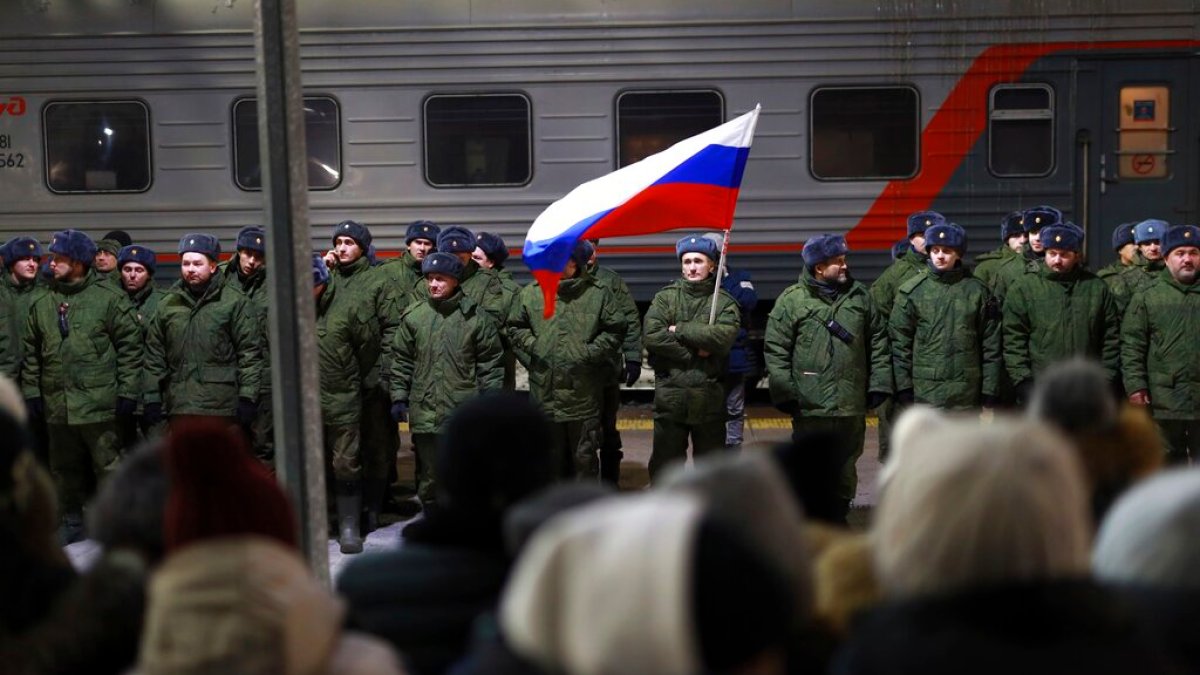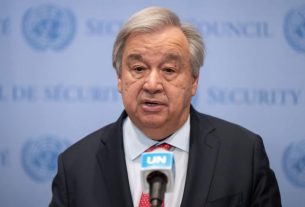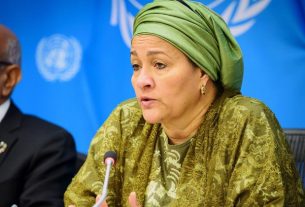|
Getting your Trinity Audio player ready...
|
Despite the Ukrainian capital suffering one of the largest missile attacks since the beginning of the Russian invasion in February, analysts doubt that Moscow is capable of mounting a new ground offensive against Kyiv early next year as Russian forces remain ill-prepared and badly battered after 10 months of warfare.
Ukrainian officials said on Friday that Kyiv withstood “one of the biggest rocket attacks” it has faced since Russia invaded Ukraine and that Ukrainian air defence had shot down 37 of about 40 missiles that entered the city’s airspace.
The head of the Ukrainian armed forces said they intercepted 60 of 76 missiles launched at infrastructure targets in cities across the country. Russian forces fired cruise missiles from the Admiral Makarov frigate in the Black Sea, while Kh-22 cruise missiles were fired from long-range Tu-22M3 bombers over the Sea of Azov, Ukraine’s air force said.
Ukrainian commander-in-chief General Valeriy Zaluzhny also said this week that he expected a new Russian assault on Kyiv in the first months of 2023.
“The Russians are preparing some 200,000 fresh troops. I have no doubt they will have another go at Kyiv,” Zaluzhny told The Economist magazine.
A major Russian attack could come “in February, at best in March and at worst at the end of January”, he said.
Although Russia mobilised 300,000 reservists between September and October, military experts say that Moscow’s new troops are unlikely to be sufficiently trained or equipped to attempt another storming of Kyiv. Moscow’s first attempt in February and March ended in humiliation, thanks to fierce defensive efforts by Ukraine coupled with significant supply, intelligence and command problems in the Russian ranks.
“Such an offensive does not appear very probable to me, but it’s not impossible at the same time,” independent Russian military analyst Alexander Khamchikhin told AFP news agency.
Discussing Russian capabilities recently, US military expert Michael Kofman also judged Russia’s ability to mount an offensive as a “rather unlikely scenario”.
“They have significant ammunition constraints and the Russian military’s performance now is very closely tied to the availability of artillery ammunition fires,” Kofman told the War on the Rocks podcast.
The White House also doubts that Moscow has the ability to mount a counterattack focused on Kyiv.
“We aren’t seeing any indication that there’s an imminent move on Kyiv,” White House spokesman John Kirby said.
Sergey Surovikin’s reputation for ruthlessness
Russia’s future military capabilities in Ukraine will depend largely on new commander Sergey Surovikin, a veteran of Moscow’s wars since the Soviet invasion of Afghanistan. The shaven-headed general with a reputation for ruthlessness has been tasked with integrating the newly drafted soldiers and regenerating Russia’s badly damaged combat units.
Australian general Mick Ryan stressed that Surovikin was also working on unifying Russia’s fractured command system and trying to better integrate air support with ground operations.
“Surovikin commands an army that suffers from low morale and keeps losing its people and best equipment,” Ryan wrote in the Foreign Policy magazine. “So far, evidence suggests that the troops Russia has mobilized to replace the dead and injured are not receiving the kind of demanding training they need to succeed.”
He warned, however, that the Siberia-born Russian military commander was “almost certainly drawing up battle plans that are clearly focused, unlike past assaults that spread Russia’s troops thin”.
Any attack on Kyiv would be immensely complicated and the city would be almost impossible to capture without destroying it.
“Taking a city without destruction is difficult, apart from cases where there is a decision to surrender, such as in Paris in 1940,” Khamchikhin said.
Pascal Ausseur, director of the Mediterranean Foundation for Strategic Studies, a France-based think-tank, said he believed the Ukrainian claims of an imminent offensive were an effort to concentrate minds in Western capitals.
“The Ukrainians are shouting ‘keep helping us, don’t let us down’,” Ausseur told AFP. “These statements are destined for the West to say ‘we can still lose everything’.”
They might also be a diversion tactic as Ukraine looks to go on the attack in the southeast as the ground freezes in mid-winter, making it easier for vehicles to travel off-road, he said.
“I would find it strange for the Ukrainians to put themselves in defensive positions which would stop them launching offensive operations before March,” Ausseur added.



